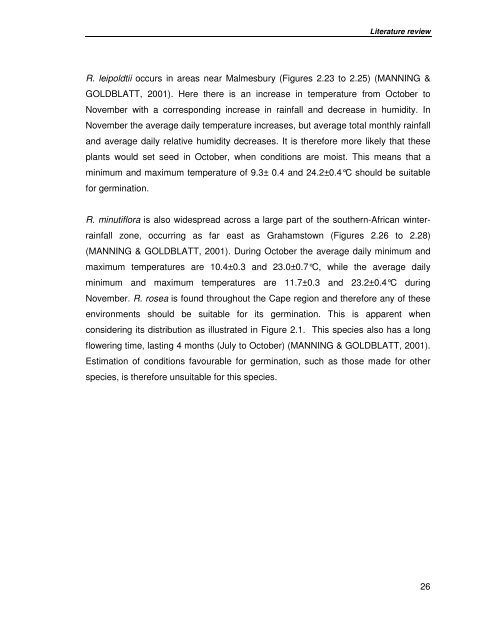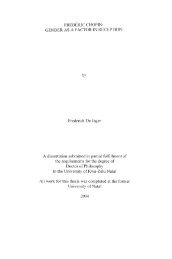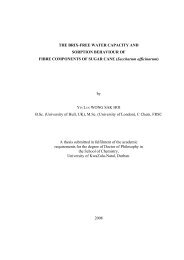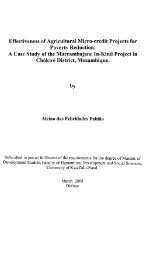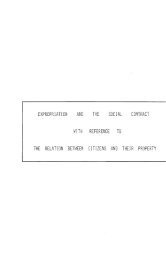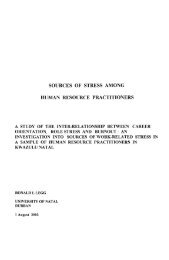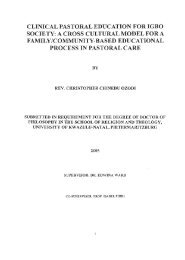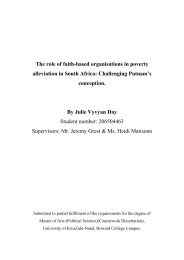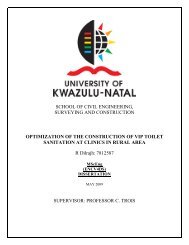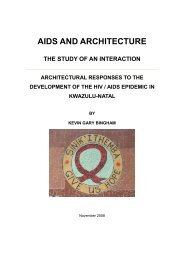View/Open - ResearchSpace - University of KwaZulu-Natal
View/Open - ResearchSpace - University of KwaZulu-Natal
View/Open - ResearchSpace - University of KwaZulu-Natal
Create successful ePaper yourself
Turn your PDF publications into a flip-book with our unique Google optimized e-Paper software.
Literature review<br />
R. leipoldtii occurs in areas near Malmesbury (Figures 2.23 to 2.25) (MANNING &<br />
GOLDBLATT, 2001). Here there is an increase in temperature from October to<br />
November with a corresponding increase in rainfall and decrease in humidity. In<br />
November the average daily temperature increases, but average total monthly rainfall<br />
and average daily relative humidity decreases. It is therefore more likely that these<br />
plants would set seed in October, when conditions are moist. This means that a<br />
minimum and maximum temperature <strong>of</strong> 9.3± 0.4 and 24.2±0.4°C should be suitable<br />
for germination.<br />
R. minutiflora is also widespread across a large part <strong>of</strong> the southern-African winter-<br />
rainfall zone, occurring as far east as Grahamstown (Figures 2.26 to 2.28)<br />
(MANNING & GOLDBLATT, 2001). During October the average daily minimum and<br />
maximum temperatures are 10.4±0.3 and 23.0±0.7°C, while the average daily<br />
minimum and maximum temperatures are 11.7±0.3 and 23.2±0.4°C during<br />
November. R. rosea is found throughout the Cape region and therefore any <strong>of</strong> these<br />
environments should be suitable for its germination. This is apparent when<br />
considering its distribution as illustrated in Figure 2.1. This species also has a long<br />
flowering time, lasting 4 months (July to October) (MANNING & GOLDBLATT, 2001).<br />
Estimation <strong>of</strong> conditions favourable for germination, such as those made for other<br />
species, is therefore unsuitable for this species.<br />
26


